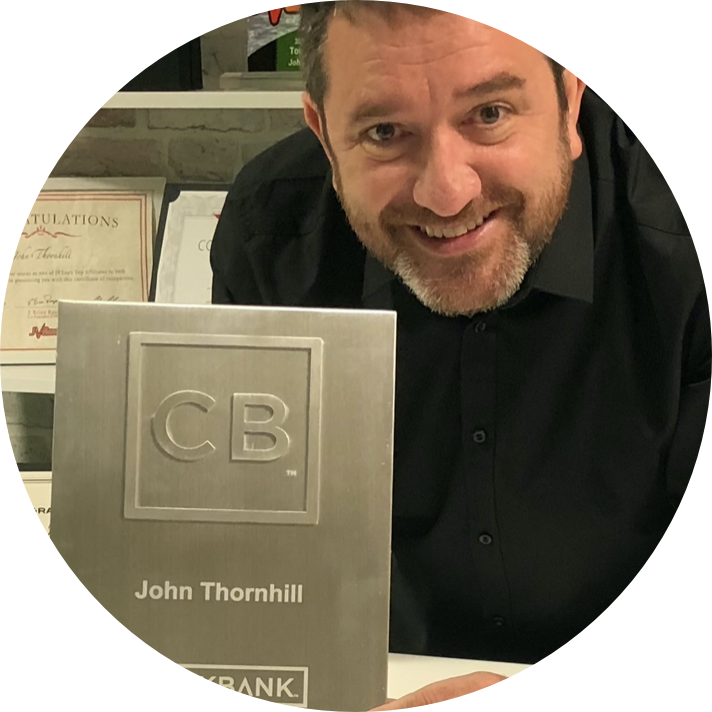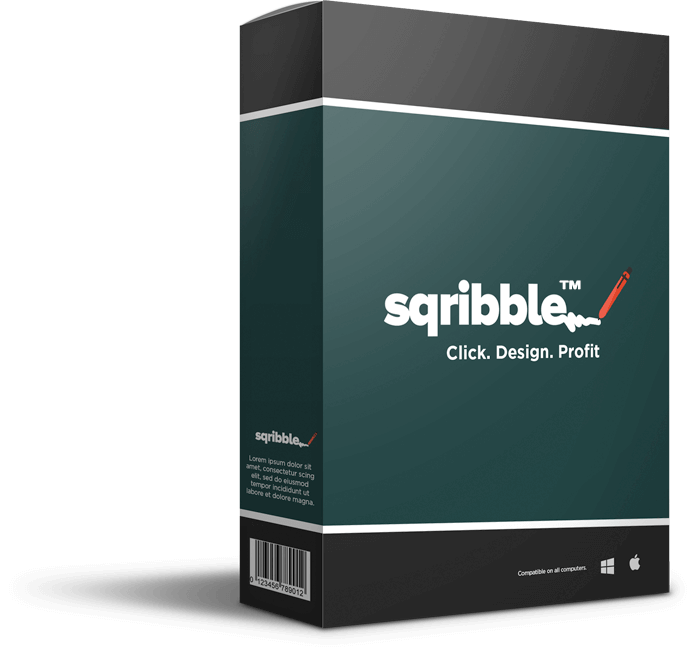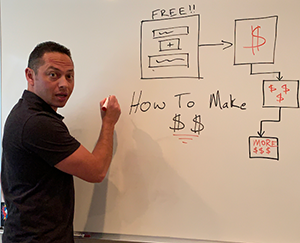The Zero Dollar Consultancy written by John Jantsch read more at Duct Tape Marketing
The Duct Tape Marketing Podcast with John Jantsch In this episode of the Duct Tape Marketing Podcast, I interviewed Phil Gerbyshak, a small business expert, author, and keynote speaker with over two decades of experience in sales and marketing. Phil shares valuable insights from his latest book; The Zero-Dollar Consultancy: How to Start Your […]
The Zero Dollar Consultancy written by John Jantsch read more at Duct Tape Marketing
The Duct Tape Marketing Podcast with John Jantsch
In this episode of the Duct Tape Marketing Podcast, I interviewed Phil Gerbyshak, a small business expert, author, and keynote speaker with over two decades of experience in sales and marketing. Phil shares valuable insights from his latest book; The Zero-Dollar Consultancy: How to Start Your Consulting Business with Little or No Money.
Embark on a transformative journey as Phil unveils strategies for launching a consultancy with minimal financial investment. Learn how to navigate the challenges faced by those starting out in the consulting world and discover practical steps to initiate and grow your consulting business.
Key Takeaways
Phil Gerbyshak, a seasoned small business expert and author of The Zero-Dollar Consultancy shares invaluable insights on mastering the art of launching a consultancy with minimal financial investment. In this episode you’ll learn actionable steps for beginners, the importance of finding a focused niche, practical pricing strategies, building strong client relationships through trust, and smart scaling strategies. Phil’s expertise provides a roadmap for both aspiring and experienced consultants to navigate the complexities of starting and growing a consultancy successfully.
Questions I ask Phil Gerbyshak:
[00:52] Why did you think that people needed advice to start a zero-dollar consultancy?
[03:26] If somebody thought to start a business. Where should they go to figure out what their focus should be?
[06:31] What’s your take on the concept of picking a niche?
[08:23] Tell us about 3 of the 10 essential free tools you mention in your book everyone needs to get started
[11:34] What’s the best way to secure your first 3 clients?
[14:07] How does a beginner with no track record or case studies determine how to price their services?
[16:53] As a consultancy with a few clients how does one determine their first hire in order to scale?
[18:22] What are some of the common mistakes consultancies fall into when they get started?
[20:06] Are there any things, trends, changes that you see coming that that are going to impact this industry?
[21:25] Where can people connect with you and obtain a copy of your book?
More About Phil Gerbyshak:
- Connect with Phil on LinkedIn
- Visit his website
- Get a copy of Zero Dollar Consultancy: How to start your consulting business with little or no money
Get Your Free AI Prompts To Build A Marketing Strategy:
Like this show? Click on over and give us a review on iTunes, please!
Connect with John Jantsch on LinkedIn
This episode of The Duct Tape Marketing Podcast is brought to you by ActiveCampaign
Try ActiveCampaign free for 14 days with our special offer. Sign up for a 15% discount on annual plans until Mar 31,2024. Exclusive to new customers—upgrade and grow your business with ActiveCampaign today!
John (00:08): Hello, and welcome to another episode of the Duct Tape Marketing Podcast. This is John Jantsch. My guest today is Phil Gerbyshak. He’s a small business expert, author and keynote speaker, boasting over two decades of experience in sales and marketing. Throughout his career. He has worked with a range of enterprises from Wall Street firms to Main Street establishments, and today we’re going to talk about his latest book, $0 Consultancy, how to Start Your Consulting Business with Little or No Money. So Phil, welcome to the show.
Phil (00:38): Hey, thanks John. It’s great to be here with you.
John (00:41): So with a compelling title, like How to Start With No Money or $0 Consultancy, let’s start really first with the premise. This is an awful question to ask an author, but I’ll ask it anyway. Why did you think that people needed advice to start a $0 consultancy?
Phil (00:57): So Million Dollar Consultancy is already out there with Alan Weiss, right? Alan wrote the book, it’s a great book. It’s great book. It’s how to Make a Million dollars and that’s great. I think though a lot of people struggle to get started, the questions that I get from folks like me are like, Hey dude, how do I get started? What’s the first thing I do, not the 15th, the first? What’s the 10 things I do? So I said, huh, let me think about that. Well, I don’t know about you, John, but if somebody asked me a question more than 10 times, I’m probably going to write down the answer and make it into something for them. So that’s what I did.
John (01:30): So give us a little, other than the fact that you’ve been doing this for a while, give us a little background on what equipped you to feel like you were going to be the voice for those people trying to get started.
Phil (01:40): Well, when I started, I had no clue. I remember back in 19 what? No, not 19 2006, not 1996, 2006. When I got started, I was like, well, what the heck is here? And before that, I mean, I did some work, but I wouldn’t call it formal. It was like I’d get paid for doing random stuff and alright, well, in 96 there was nothing out there. And so I started doing things and then people would ask me questions and I’d end up coaching them, and then they’d ask me more questions and coach ’em some more, and then they refer to their friends and I’d coach ’em a little bit more. So I think of that as consulting, right? Because coaching, I’m not talking ICF. So tell me about your feelings and what do you think, John? But really in my zone of genius, which is tech, marketing and sales, inside my zone of genius, I know a lot of stuff.
(02:31): So people would ask me questions and it would be way more complex than I could write in an email. So I was like, huh, okay, well maybe I should charge you some money for this and people would gladly give me money. And then so it just happened that I would do this, but I never ever found just that startup bible that I needed. Not hardcore Eric Rice type of stuff, just simple, actionable, do this stuff. So here we go. I said, this is the stuff that I coach. This is what I teach, this is what I believe, this is what I know works. So let’s write a book.
John (03:05): So the technology, the world we live in, all the things that have changed. I mean, it made it really pretty easy for anybody to get into any kind of business, regardless of the type of business. And frankly, there are heck of a lot of people that are doing the same thing. They worked for a company for a while, they didn’t like it anymore. It’s like, I think I’ll do my own thing. How does somebody decide? How would you suggest that somebody decide some sort of focus? I mean, it’s one thing people are asking you to help ’em a little bit. You sort of get led into it, right? But if somebody’s thinking today I’m going to start a business, I mean, where do they go to figure out what their focus should be?
Phil (03:42): Sure. Well, I read a little bit about this in the book because it’s hard to find a focus if you don’t have a guide. Here’s the key, right? Find a guide, find a mentor, find someone you trust, and to ask them to ask you some questions. Some of those questions might be, so what are you good at? What do you enjoy doing? What do you not want to be doing? Who do you likes? You? Those are the types of questions that help. And then take some assessments. Take some assessments, see if that’s really true. You know what? I like that. And I believe we make the most money and the biggest impact in our icky guy. If we think about that, what people pay you for, what we’re good at, and then what we love. If we can combine those things, what gives us that juice?
(04:25): We combine those things, that little sliver there, that’s the best money. But from there, pick one of those three. I mean, you don’t have to be the biggest expert to be able to consult with people. You just have to be a few steps ahead of them and understand, okay, so this is what they need. I’m not telling you that you should claim that you can take people to $10 million if you’ve never done it, but what I am telling you is if people ask you questions and they ask you them over and over again, you can work with people like that to start your business. And that can be your focus.
John (04:57): And I think for a lot of people, I know to some degree in my experience, you evolve with clients. So some of those first clients you have to, may not be a perfect fit, may not be the right thing, but you learn what you do, what you don’t like, what you’re good at. So sometimes it’s just a matter of get out there and start swinging, right?
Phil (05:16): Absolutely. So that’s the biggest thing. I’ve got a whole chapter on it, just getting started. I do think that’s the hardest thing. I don’t want people to overthink that. That’s one of the reasons why I have 10 free tools. They might not be the greatest tools on the planet. There’s thousands of tools though. Like John, how do I build a landing page? Oh my gosh, how much time you got? Or go to card.co and go build yourself a landing page. That’s the thing. Just get started. And I agree with you. We do grow. We do pivot. I got to ask. Somebody asked me today, they said, so Phil, what advice would you give to people just starting out? And my answer would be prepared to change. It will not look anything like you expected when you started.
John (06:01): Yeah, that’s interesting. There’s certainly a lot of common advice out there now, talking about people picking a niche and going really deep in that. And I think there certainly can be some value in that. If your whole world background is in a industry, it probably makes sense for you to start there. But I think it’s really hard. I always tell people, just go get a few clients. Your niche will find you. Rather than saying, I’m going to today, start going forward, I’m going to work with dentists. It’s like, I’ve never worked with dentists. I don’t know if I’ll working with them. Right? So what’s your feeling on that idea of, because I mean, you can find plenty of experts talking about that’s the way to go pick a niche and go deep in it.
Phil (06:40): Well, it is hard. It’s so hard because you might hate what you did. So instead, let’s pick how you can pick instead of that, right? Instead of what you should pick. So how you can pick, you might say, you know what, I like working with middle managers. I like working with business owners. I like working with entrepreneurs. I like working with program managers. I like working with software developers. I mean, pick one of those, even if you’re not one of those and pick one. Get a couple clients and say, test your hypothesis. Do I like working with them? And if I do a good job, do they pay me? You know what I would love? There’s a lot of companies, a lot of nonprofits, a lot of people that I’d love to work with. But if you’re going to pay me 10 bucks an hour, well, I can make more than that at McDonald’s. That’s not worth my time. I mean, I don’t like that. Now that being said, maybe you do give away your first couple gigs. You waive your fee to get testimonials, to get feedback.
John (07:40): Case studies,
Phil (07:41): Case studies. Maybe you waive your fee, but you don’t just give it away. You don’t advertise. This is free. Then you get free suckers. And I hate free suckers,
John (07:50): People just suckers. Well, plus I think you devalue what you do as well. I often tell people that are just getting started charge more than you think anybody’s going to ever pay you because there’s less competition at say, $5,000 a month than there is a $2,000 a month. And as long as you know can deliver value, it’s a lot easier to work with fewer clients at a higher retainer. So let’s talk about, I do want to come back to the 10 tools because everybody loves tools. So maybe let’s go there right now. Don’t give out the whole list because people need to buy the book to get the whole list. But let, let’s go with three free tools that you think these are foundational. Everybody needs these when they’re getting started.
Phil (08:29): Sure. Well, I talked about card. CAR d.co is a free landing page tool. I think you should have an offer. I don’t care what it is. It could sadly just be for a newsletter that you give out coupons. That’s okay. Something though. Start capturing email addresses with that. Connect that to a MailChimp. MailChimp is free. ConvertKit is free under a certain amount. Find a free one just for and start gathering those. So those are two. And then the other one is, I don’t know about you John, but I like money. Do you like to get paid?
John (09:03): That’s what a lot of folks that are starting out. That’s like an afterthought. But yeah, that should be the first thought, right?
Phil (09:09): Right. That should be right here. So wave.com. Wave apps.com. A, it allows you to invoice. Now you say, Phil, I don’t want to take money online. Okay, you don’t have to, but you can use that to have professional looking invoices. And I will tell you, professional looking invoices get paid faster than ones that look like your 8-year-old. My 8-year-old made them with his crayons. So please get that set up. And do accept credit cards. Do accept aach H because it’s a small fee. It’s a small fee mark. If you can’t afford 3%, raise your rates. Raise your rates. I mean, come on now. Don’t charge it to your client. Raise your rates. And with that, as you get more money and you understand it, continue to raise your rates.
John (09:59): Yeah, no question. It’s my pleasure to welcome a new sponsor to the podcast. Our friends at ActiveCampaign. ActiveCampaign helps small teams power big businesses with the must have platform for intelligent marketing automation. We’ve been using ActiveCampaign for years here at Duct Tape Marketing to power our subscription forms, email newsletters and sales funnel drip campaigns. ActiveCampaign is that rare platform that’s affordable, easy to use, and capable of handling even the most complex marketing automation needs. And they make it easy to switch. They provide every new customer with one-on-one personal training and free migrations from your current marketing automation or email marketing provider. You can try Active Campaign for free for 14 days and there’s no credit card required. Just visit activecampaign.com/duct tape. That’s right. Duct Tape Marketing podcast. Listeners who sign up via that link will also receive 15% off an annual plan if purchased by March 31st, 2024. That’s active campaign.com/duct tape. Now, this offer is limited to new active campaign customers only. So what are you waiting for? Fuel your growth, boost revenue and save precious time by upgrading to active campaign today. Let’s talk about getting clients.
Phil (11:19): Yeah,
John (11:20): I got sidetracked there for a minute because the whole pricing thing I want to come back to as well. But as far as getting clients, again, we’re probably talking about selling professional services to other businesses, B2B, right? So are there certain tactics or approaches that we should focus on first? I see a lot of people go jumping into business and they want to build the perfect funnel and have thousands and thousands of subscribers. And what’s the best way to get client? 1, 2, 3.
Phil (11:50): Well go see them in person would be best way, if you can, and I know that sounds so old school, but really these should be people that you know already trust you, people that know you, right? So go knock on the door. Hi John, how’s it going? Hey, you got 30 minutes, we can talk. And most people be like, yeah, hey, let me buy you lunch. Great. Well, here’s what I’m working on. Do you need this service or do you know somebody who does? That would be step one, step two, pick up the telephone, pick up the phone and ask people again. The good news is you should already be in their phone. You should already be in their phone. They’re going to answer it. So that’s your second way. And if that fails, well good luck. They’re not really good friends. I mean, really, those are the only two ways as you’re starting out to get your client 1, 2, 3.
(12:40): That should be a way that you do it. Now, if they’re across the world, I understand, get on Zoom, start a podcast, ask them questions, get to learn who the heck they are so that when you do send that email, it doesn’t go to spam that they don’t just ignore you. So that when John Chance sends you an email, I’m like, yep, what do you need, John? As opposed to John sends the fifth follow-up and like, dude, did you get swallowed by alligators? And I’m like, no, man, I’ve never got a message from you before that went in the spam bucket. I’m sorry.
John (13:12): Yeah. So a couple things I want to throw in there, and I know you agree with this too, but LinkedIn, that’s the equivalent, can be the modern equivalent done right, of reaching out to people that already know you and already trust you. I’m glad you used a trust word because that’s what I always tell people is I said, your target market should be people that already trust you because you really are going to go out to them and say, here’s what I’m doing. Got any ideas for me? You’re not necessarily pitching them. Maybe if they’re a perfect fit, you’ll pitch. But a lot of what you’re doing is just talking to people. Every single one of us knows somebody who needs you. And so a lot of times you’re just talking to people so that they can go, oh, you know what? I just had a conversation with Phil yesterday and he was telling me that he needs this.
(13:53): And so five times a day, you got to be doing that early on if you’re going to get in any kind of momentum going, particularly when you’re just getting started and you don’t have this rock solid offer and website and all that kind of stuff. Let’s talk a little bit about pricing. I know a lot of people struggle with how to, especially when they don’t have a track record, they don’t have all kinds of case studies that can prove that they get the results. So how do I go about finding what would be the right price? I mean, am I just saying, well, how much do I think people will pay me? Am I looking at industry guides? I mean, how do I go about pricing my service?
Phil (14:31): Well, either of those are valid, but I like to do this instead. I like to figure out how much do I need to make a month? So let’s do round numbers here. I like round numbers. I need to make $10,000 a month. I want to work a hundred dollars a month. That means I need to charge a hundred dollars an hour. Now that being said, here’s the thing, you’re not working every hour. So I would say take that and double it, and that should be your price. So $200 an hour should be your start. If you want to make 10 grand a month, and you’ll be lucky if you work 50 hours a month. Now, that’s not to say you’re not going to do 200 hours of work, but you’re going to do 50 hours of billable time. Think of an attorney who before they make partner, has to do their own research, has to do their own outreach, who has to do their own marketing?
(15:17): Who has to still answer their own phone? Who has to answer their own email? Who has to go to networking events? That’s you. That’s you. So 50 hours of billable time a month would be awesome, and that will get you there. But it’s hard. It’s hard to get there. So I would tell you, Dan Rome said to me, John, I was at an event at 800 CO read years ago, and Dan’s advice for everybody starting out was two words. Second mortgage, meaning it’s going to be expensive, right? It’s going to be expensive to get started. And don’t be disappointed by that. Just know that until you get a cooking. That’s why I don’t recommend you leave with zero clients. Take your day job, use that as your capital infusion and your business, and start freelancing. Start moonlighting. Start getting some clients that my first coaching clients were at five in the morning or at 10 at night.
(16:09): They were in different parts of the world. That’s how you started out. You got to be willing to hustle it a little bit at the beginning. I mean, this whole hustle culture, once you get to a certain point, you don’t have to work as hard, but you still got to work hard always. So start out people that know you, people that trust you, people you can talk to, figure out your hourly rate. And then here’s the thing, it’s okay to negotiate. It’s fine. You don’t have to hold that rate. But if you start if a hundred dollars and then negotiate down, you get $75, they start at $200 and then negotiate down $50, you’re still getting 150. So that start high.
John (16:53): Alright? So I’ve got a few clients, actually, things are starting to fill up. I’m feeling a little stressed because I’m working a lot. What’s my first hire? How do I take it beyond just me and the time that I’ve got? Because let’s face it, that doesn’t scale.
Phil (17:09): Yeah. So where are you weakest? What part of your business takes the most of your energy? If you hate sales, well, you probably shouldn’t go into business for yourself, but if you
John (17:20): Do, because no matter what you do,
Phil (17:22): It’s sales. Maybe it’s sales, right? But beyond that, you need to hire a money person, C-O-C-A-O, whether it’s part-time or full-time.
John (17:34): Somebody to send out your invoices, right? Yeah.
Phil (17:38): Well, or someone that isn’t you to hound dog, someone who didn’t pay the invoice. I hate that. I dunno about you, but I hate being a beggar. I don’t be like, hi John, you still owe me $112. Hi, John. Still $112, right? I hate
John (17:51): That. I tip for you. I’ll tip for you, Phil. We get paid upfront. We don’t invoice anybody. We put
Phil (17:58): Love that too. Love that too. Absolutely. But people you trust though, people you trust, though I trust you’re going to pay me, John. So okay, I’ll get started on the work and then I get 10 hours in and again, right?
John (18:12): So I keep losing my question there that, oh, I know. Yeah, I have it here. I was going to go to mistakes. So we’ve talked about a lot of the things to do. Sometimes people learn Best Buy, like what not to do. So what are a handful of common things that you see, mistakes that you see people fall into when they get started?
Phil (18:32): Don’t partner too soon. First of all, stay by yourself. I’ve had more failed partnerships than I can tell you, both relationships as well as business wise, because we go too fast. I get happy years. People get happy years, and they’re like, oh yeah, that’s perfect. No stop. Is this really perfect? Or does this just feel good? So everybody’s got to bring their own clients. So the next mistake that I’ve made is putting people on payroll too soon. Somebody who does what I do does not double business. I still have to manage them. That’s a hard thing. That’s money that I don’t get that they get, which is really paid. They are getting paid for me to mentor them. That’s a big mistake. So don’t do that. And then I would say probably the third big mistake is don’t save for your taxes. Take that money, put 33% aside. You make a dollar, you put 33 cents aside. Make a hundred bucks, you put 33. I’m still paying my taxes from early in my career. Later I’m better, but I’m still paying early career taxes because I didn’t have that sensibility about me. I’m like, oh, I’ll make more money. Sure you will. And then you have lean times and then the IRS loves you and they’ll call you every day. No, don’t do that.
John (19:46): Yeah. I think human nature for a lot of us that if money’s in the bank, we’re going to spend every bit of it. But if we put it in, if we take it out as a bill every month, it’s like, well, I don’t have that money anymore, so I better figure out how to do with less. So. Absolutely. Right. That’s right. So I always quite often like to look ahead. Are there any things, trends, changes that you see coming that are going to impact this industry or this way of going to work?
Phil (20:13): Well, AI of course, is going to change the whole game. AI will make things faster. You’re not going to be replaced by ai. You’re going to be replaced by somebody who knows ai. So start to learn AI now, whether it’s Grammarly or chat GPT or video editing, or insert your thing here, use AI and get used to it. That’s the biggest trend. Stay on top of that. And then you know what? That could be something that you add to your arsenal. Don’t gin up a business and say, oh yeah, I’m an AI expert. You’re lying. You’re not.
John (20:46): Well, we both have been around long enough to remember all the people that built their business as Twitter experts, and so it’s not the platform. Fundamentally, what AI does for fundamentally what we are here to do hasn’t changed. AI just gives us another set of tools in order to do that. But if you’re not providing strategy context, it’s just a bunch of lousy tools. And frankly, in two or three years, it’ll all change. So absolutely, 100%. There’s a whole lot of snake oil being sold under the AI get rich bucket right now, but don’t fall pre to it. So Phil, I appreciate you taking a moment to stop by the Duct Tape Marketing Podcast. You want to invite people to connect with you somewhere, or certainly find out where they can grab a copy of $0 Consultancy.
Phil (21:33): Sure. So go to ZDC for $0 consultancy book.com. That’s the easiest place to get it. And then find me on LinkedIn. Spell Gerb Hack. You’ll find me G-E-R-B-Y-S-H-A-K. Just
John (21:45): Find me. Awesome. Awesome. Again, Phil, thanks for stopping by taking a moment, and hopefully we’ll run into you one of these days out there on the road.
Sign up to receive email updates
Enter your name and email address below and I’ll send you periodic updates about the podcast.
Recommended Story For You :

How To Make $3493 Commissions Without Doing Any Selling

Successful dropshippers have reliable suppliers.

People Think I Use A Professional Voiceover Artist. NO! I Just Use Speechelo!

Make Money Testing Apps On Your Phone Or Tablet

Make More Money or Lose Everything

Sqribble Is The ONLY eBook Creator You’ll Ever Need.

Work & Earn as an Online Assistant

Create Ongoing Income Streams Of $500 To $1000 Or More Per Day

It's The Internet's Easiest Side Business.


Leave a Reply